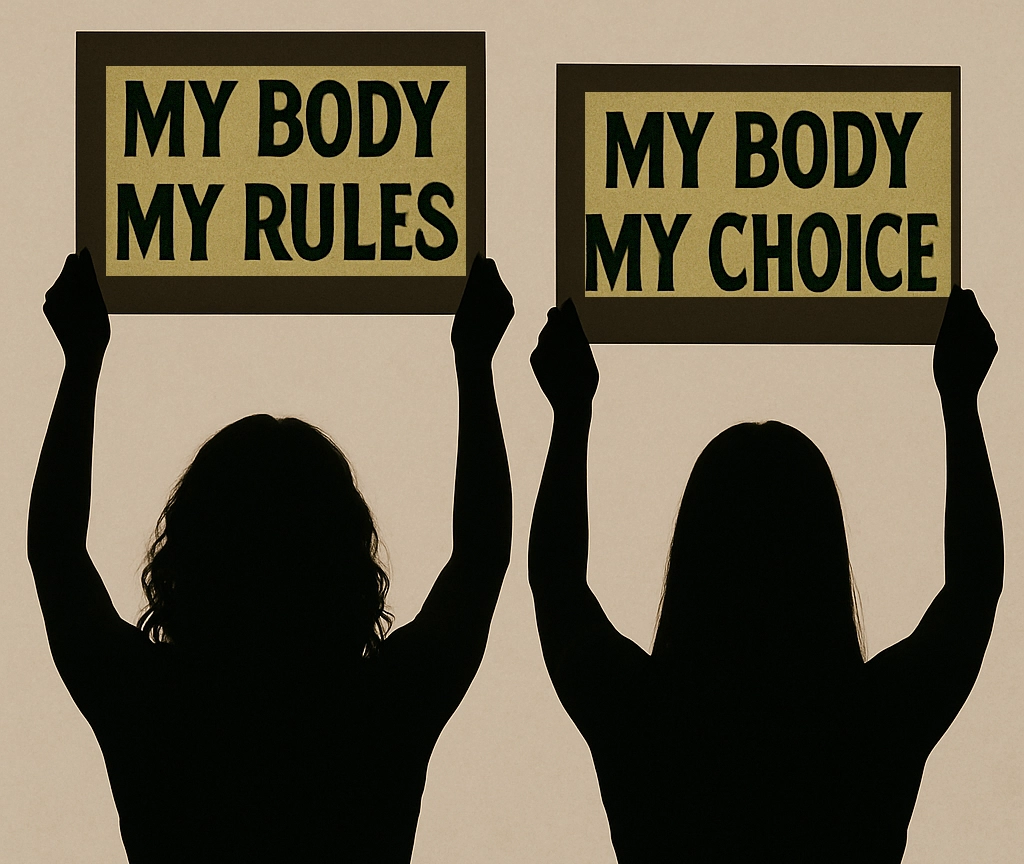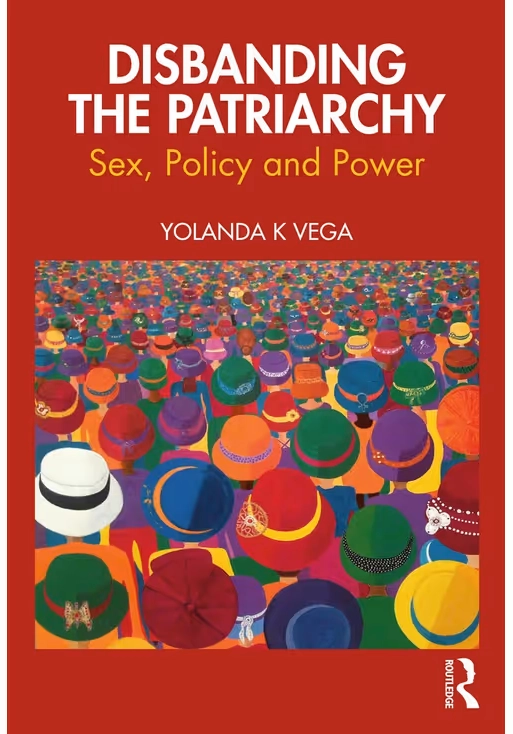Your shopping cart is currently empty.
We know health is a human right, and it’s time women got the deluxe version – with accurate diagnoses, and a side of scientific respect.
If history has taught us anything – and let’s face it, it’s mostly taught us about men – it’s that when men come across something they don’t understand, they do one of three things: they ignore it, slap on a name with too many syllables, or declare it a threat to civilisation. The female body, of course, is no exception.
For centuries, the XX-chromosomed body has been treated like a biological Rubik’s cube – baffling even to the most curious XY minds. By which I mean predominantly white men in robes: habitually privileged, occasionally corrupt, and rarely in a rush to read the instructions. Their verdict over the years? Women don’t orgasm (how convenient), menstruation induces lunacy (but only in women), and breastfeeding – while entirely natural – should be done in the shadows, lest someone confuse nourishment with nudity.
So here we are, still knocking on the clinic door, smiling politely and saying, “Excuse me, doctor, my uterus would like a word… and kindly don’t objectify me, again.”
You see, modern medicine was built on the quiet assumption that the default human is an XY – and not just any man, but a 70-kilo, white, biologically untroubled specimen engineered for clinical convenience. As for those with the XX? Merely a defective budget-edition male who, presumably distracted by shoe sales, grabbed the wrong chromosome on her way out of the womb.
From the moment we arrive – sucking in oxygen until we don’t – we’re reminded that one non-standard chromosome makes us the exception, not the rule.
Take clinical trials, for example. Until embarrassingly recently, women were routinely excluded on the basis that our bodies were just too complex, too hormonal, too inconvenient to study, or frankly, too much hassle – as if the entire scientific fraternity might collapse from a subject who bleeds on a schedule and complicates their clinical narratives. As if science, that brave frontier of human curiosity, couldn’t possibly cope with a variable that wasn’t a white, middle-aged man whose idea of trauma is a long queue at the supermarket.
So instead, the patriarchs tested everything on men, assumed the results would translate to all bodies, and called it science – which has proven to be about as accurate as tailoring a ballgown for a debutante using an elephant as a mannequin.
The result? Heart attacks that go undetected in women, pain responses dismissed as dramatics, and drug dosages prescribed as if hormones and life stages were optional extras rather than fundamental biological facts.
Despite being a monthly reality for half the planet, menstruation has long been treated like a bodily scandal best left unspoken in polite company. On TV, it was masked with blue liquid – because apparently, showing red might shatter the illusion that women glide through their periods like enchanted lava lamps.
Being ignored is the reality for millions – when cramps aren’t just cramps, and bleeding isn’t just a monthly irritation. Getting someone to take you seriously can feel like starring in a courtroom drama where your pain is on trial, and the judge refuses to recognise the uterus as a credible witness.
Endometriosis? On average, it takes a decade to diagnose. Polycystic ovary syndrome? Often shrugged off like a scheduling hiccup. And let us not even speak of menopause, which sounds like a minor pit stop for passengers on the slow train to a decade-old festival of hell – complete with insomnia, spontaneous sweating, and forgetting you’re a sexual being when your partner walks in!
Still, we persist – climbing upwards, crawling sideways, occasionally power-walking backwards in heels, and sometimes spiralling through the chaos.
One might think, by now, that medicine would want to nurture us, or at the very least adapt – after all, we hold up half the sky, earn more than ever, and dare to be independent. But no. Apparently, assembling research teams willing to queue up and crack the mysteries of female biology takes time. So instead, we get the wellness industry: equal parts lavender oil, charcoal smoothies, and yoni steaming.
An ancient practice found in various parts of the world, where the vagina is steamed postpartum to balance menstruation, support fertility, and connect spiritually with the body. Yes, it seems yoni steams were prescribed by the vagina-whisperers of the past – now summoned back with scented candles to remind us that – surprise! – our vaginas need a detox, too!
On the positive side, we do have the contraceptive pill, for one. Revolutionary! Empowering! And also… occasionally terrifying. Depression, weight gain, nausea—and in rare cases, strokes. Taking it has sometimes felt like being handed a fire extinguisher and told, “It might burst into flames, but at least you’re the one holding it.”
But things are changing – slowly, yes, but like a sunrise: impossible to ignore once it starts.
A growing number of researchers – many of them female – are asking proper questions. Like: ‘Why are women more likely to be prescribed antidepressants when they report chronic pain?’ And: ‘Is it possible that period pain isn’t a personal character flaw but biology just doing its messy, hormonal thing?’
Even doctors are beginning to admit that the one-size-fits-men model of health care might not be the holy grail after all. Enter “sex/gender-specific medicine (SGM)” – finally acknowledging that not every body opens up with the same Allen key!
And thanks to the many who refused to nod politely – and the many who reject the status quo – real change is breaking through the cracks, powered by the simple truth that knowledge is power. From community-led birth services to women-focused clinics, alternatives are emerging: spaces where listening is the first diagnostic tool, and where pain is acknowledged not as performance art, but as credible evidence from the people who live inside those bodies.
So here’s to asking awkward questions, to turning up at the GP’s office or the hospital with a printout of symptoms and questions and a PowerPoint presentation outlining the issues, to demanding that XXs be studied with the same vigour as erectile dysfunction in XYs.
And here’s to never, ever accepting “take a painkiller, rest, and don’t stress” as a legitimate medical plan – unless it’s backed by peer-reviewed research, notarised by a yoni, and sealed with the patriarchy’s formal resignation letter.
Remember, our pain isn’t a punchline – it’s a bloody important data point. And our bodies aren’t a medical mystery – they’re extraordinary machines waiting for science to catch up.
So let’s stop apologising for our biology and start demanding a system that doesn’t treat being female as an inconvenience, one that sees us as a scientific fact, not a flaw; and doesn’t wait for a crisis before it cares!
To get more facts click here.


